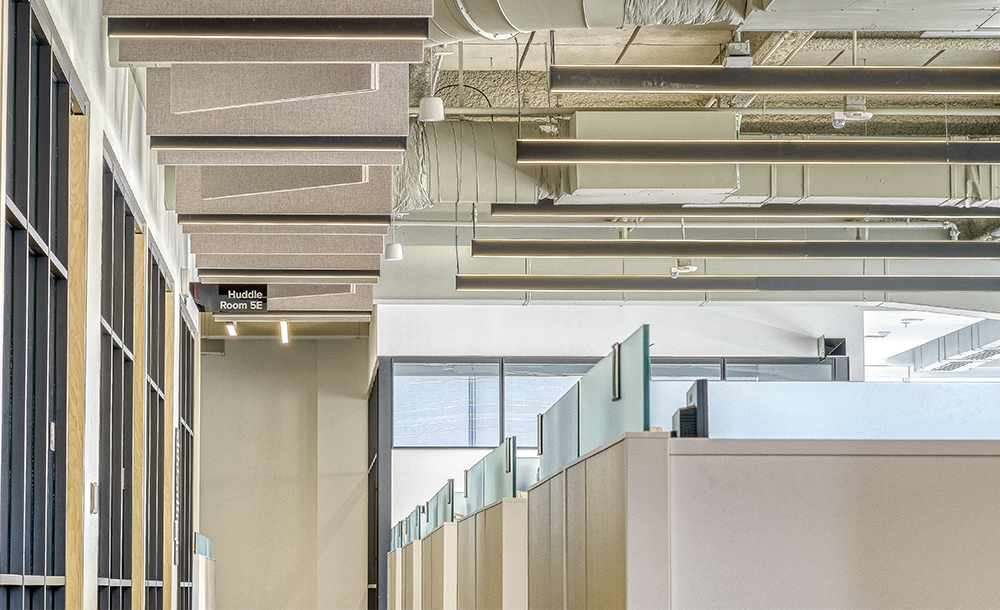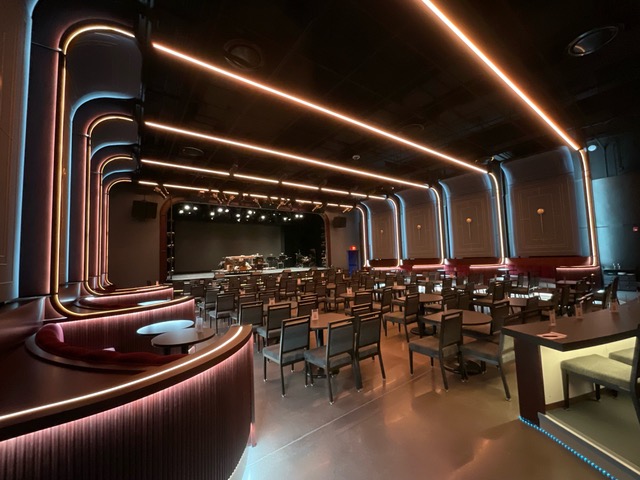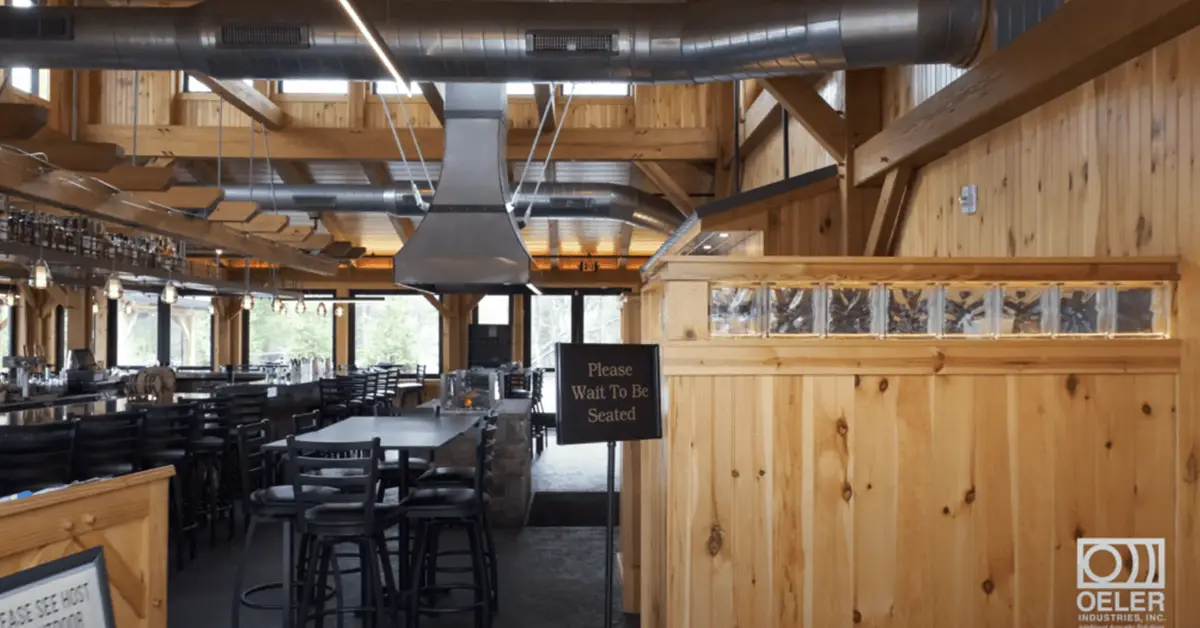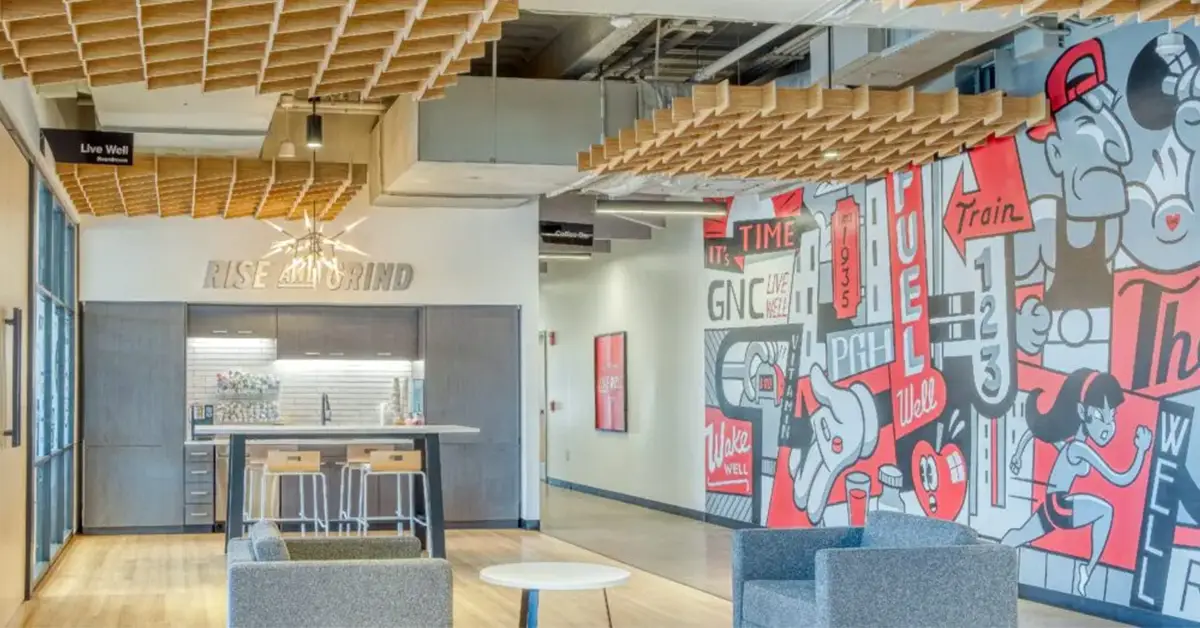X

Corporate spaces have need for privacy as well as areas of clear communication. Achieving these goals is done through intelligent design and engineering.
Many times, poor acoustic design in a corporate environment goes unnoticed until after the space is built. Contemporary corporate environments present a variety of acoustic challenges, including rapid communication, reverberation from hard surfaces, lack of privacy or confidential spaces.
From call centers to conference rooms, from open office plans to private spaces, we design and use corporate environments to harness the magic that happens when we work together. If we can’t effectively communicate in these spaces, however, none of the other design elements matter.
Background noise can be distracting and stressful for employees, and can even transmit through the phone to the customers making communication difficult. Mechanical equipment noise is another frequent complaint, caused by vibrating HVAC and other building systems.
Unwanted noise can also flank over top of dropped ceiling tiles and into the adjacent space if the common walls are not constructed to the top of the existing ceiling or plenum.
Controlling noise in corporate environments requires creative solutions that span a wide range of parameters. To aide in solving these types of noise issues, the following key elements should be considered:
We use best-in-class techniques to examine acoustic problems before recommending a solution
Using data collected from our analysis, we create custom solutions to solve your unique acoustic challenges
Using rugged commercial grade materials, our intelligent acoustic solutions look great, sound amazing, and stand the test of time
Focusing on proper acoustics in the corporate environment reinforces your company’s brand proposition to your customers by enabling effective communication across teams and other stakeholders. Using our unique approach to solving noise problems, we create turn-key solutions that help drive value from the corner office to the smile on the face of your client.
As experts in acoustic design, we can help develop an effective, comfortable, and aesthetically pleasing acoustic solution that helps your organization improve the quality and productivity of time spent in your facility.
Our project managers will work with you to assess your noise control needs. With a keen focus on delivering a turn-key solution, we can help design an acoustic package to solve any noise issue.

After a 13-month hiatus, the Greer Cabaret Theater made its return in September 2023 following a $6 million renovation, which included significant improvements to the acoustic environment. The renovation project was a joint effort between DLR Group from Ohio and mossArchitects based in Pittsburgh. DLR Group, leveraging their in-house acoustic specialist, spearheaded the design of […]

As the holiday season is in full swing, businesses set out on a mission to craft unforgettable experiences for customers. With all the festive decorations and sparkling displays, the often-overlooked yet influential element of sound, more specifically the acoustic engineering of the space, has the potential to transform these experiences into cherished memories. Whether in […]

Today, in the tough world of business competition, your brand goes beyond just a logo. When people step into your physical spaces, whether it is a store, office, or restaurant, they enter a carefully curated world that tells your brand’s story. This story goes beyond mere looks – it is about creating a connection that […]